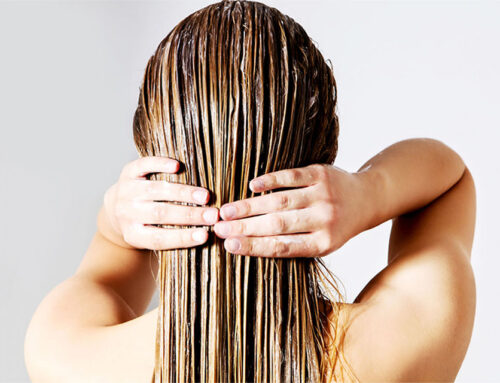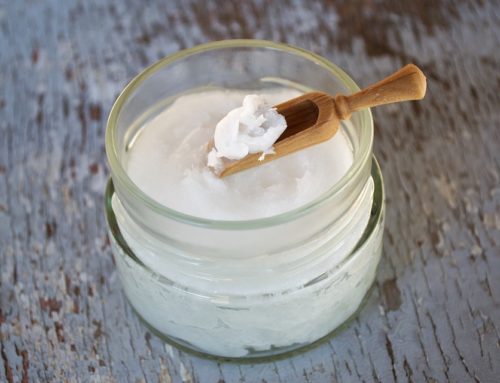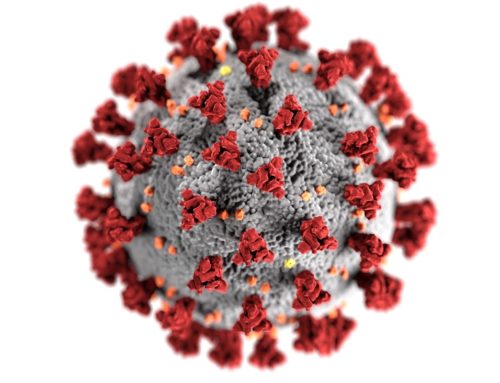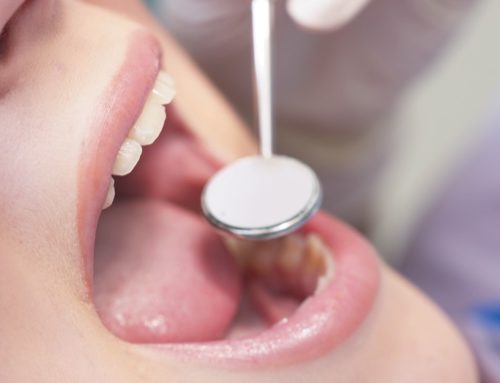I am tired of people like many journalists, many politicians, some doctors and some scientists who say that there is no remedy against this corona virus The large majority of infected people has already shown that survival after infection is the norm. Down with the fear mongering and fatalism. Instead, being careful and strengthening our resistance.
My advice is based on 19 scientific articles, summarised in one document. Taking into consideration that there is scientific evidence for the antiviral power of extra virgin coconut oil, I recommend people to take a preventive tablespoon of extra virgin coconut oil daily Coconut oil has no negative side effects on health. And this has been scientifically demonstrated. This advice is not meant to replace a doctor.
26.03.2020, Author Bart Maes (www.bartmaes.eu).
With thanks to: Dr J. Montoya, Dr. Fabian M. Dayrit, Ph.D. & Dr. Mary T. Newport, M.D., as well as my thanks to Ateneo de Manila University, and the National Academy of Science & Technology-Philippines
The World Health Organisation (WHO) on the Corona virus
While I write this, the WHO has declared a world-wide emergency about the new corona virus COVID_19, that in the meantime has also spread far outside China. This virus appears to be related to SARS (Zhou et al., 2020), a corona virus that caused an outbreak in 2003. Several researchers have developed medicines that are specifically targeted to protease enzymes (protein digesting enzymes) in the coronavirus, but the results of these medicine / vaccines will not be available for months yet.
Various researchers are calling for extra virgin coconut oil to be used against the Corona virus due to its strong antiviral effect.
Dr. J. Montoya, Dr. Fabian M. Dayrit, Ph.D. and Dr. Mary T. Newport, M.D. are researchers (including at Manilla University & Nat Academy of Science) who are currently asking for the potential of extra virgin coconut oil to be considered in the battle against viruses. Pure, biological coconut oil as a strong and safe antiviral agent against viruses such as the corona virus COVID-19. The strong antiviral properties of coconut oil have already been proven multiple times in various scientific studies.
What if there is a treatment for the coronavirus that may already be available and the safety of which has already been established?
The National University of Singapore is now testing extra virgin coconut oil specifically for use in the battle against the corona virus COVID-19 and is arranging for coconut oil to be prescribed preventively. (FP, Foreign Policy News, 13,3,2020)
Coconut oil contains certain substances in a unique combination, which together are very effective. For instance, lauric acid (C12) and monolaurin (its derivative) have been known for many years to have considerable antiviral properties. Lauric acid is a medium chain fatty acid that makes up about 50% of the coconut oil. Monolaurin is a metabolite naturally produced by the body’s own enzymes when consuming coconut oil and is also available in pure form as a supplement. Sodium lauryl sulphate, a very common surfactant made from lauric acid also has powerful antiviral properties. Lauric acid, monolaurin, and sodium lauryl sulphate (also known as sodium dodecyl sulphate) are used in many products because of their antiviral properties.
Modes of action of coconut oil and its antiviral fatty acids.
There are three proven modes of action that explain the antiviral activity of lauric acid and monolaurin in coconut oil. These:
- cause the disintegration of the virus membrane
- can slow the stage of late ripening in the replicative cycle of the virus
- can prevent the bonding of viral proteins to the host cell membrane.
1. Disintegration of the virus membrane
The antiviral activities of lauric acid and monolaurin were first noticed by Sands and co-workers (1979) and later by Hierholzer & Kabara (1982). In particular, Hierholzer & Kabara demonstrated that monolaurin may reduce the effectiveness of 14 human RNA and DNA-enveloped viruses in cell culture by more than 99.9%. Monolaurin works by disintegrating the virus membrane. Thormar and his co-workers (1987) confirmed the capacity of lauric acid and monolaurin to inactivate viruses by taking apart the cell membrane. Of sodium lauryl sulphate (a derivative from coconut oil), it has been shown that the viral envelope can dissolve and denaturate (Piret 2000, 2002).
Coconut
oil has been shown to dismantle gram positive viruses and
bacteria. The human immune system can then easily deal
with the dismantled virus.
See information on gram positive viruses at the bottom of the text. Also, see the video.
2. Lauric acid in coconut oil slows the ripening of
viruses
so they cannot multiply, or are significantly prevented from doing so.
Viral haemorrhagic fever is a disease caused by a virus. Depending on the virus, the course of the illness can range from mild to serious. The viruses that cause haemorrhagic fever are RNA viruses. As well as fever, there are complaints of tiredness, dizziness, weakness and muscle pain.
Haemorrhagic
fever is often difficult to diagnose. The mortality ranges from 25% to
90%. According to De Merck Manual (Haemorrhagic fever, February 2003).
The Junin virus (JUNV) is the cause of Argentine haemorrhagic fever. In
a comparison between the saturated fatty acids of C10 (from coconut oil) and C18
against JUNV infection, Bartolotta and colleagues (2001) demonstrated that lauric acid
from coconut oil was the most effective inhibitor. Studies led to the conclusion that
lauric acid slowed a late ripening phase in the replicative cycle of JUNV According to
transmission electron microscope images, JUNV is an enveloped virus with
glycoproteins, which are embedded in the lipid bilayer that forms viral peaks
(Grant et al., 2012), comparable to COVID-19.
3. Prevents the bonding of viral proteins to the host cell membrane.
Hornung and his co-researchers (1994), demonstrated that the lauric acid from coconut oil inhibits the production of infectious vesicular stomatitis virus in a dose-dependent and reversible manner. Once the lauric acid was removed, the antiviral effect disappeared. They noticed that the lauric acid did not influence the protein synthesis of the viral membrane (M), but prevented the bonding of viral M-proteins to the membrane of the host cell.
Coconut oil the enemy of the corona virus thanks to several effective fatty acids
More than 70% of the fatty acids in coconut oil have antiviral properties, including lauric acid, capric acid, caprylic acid, caproic acid and myristic acid, all of which have antiseptic properties, both viral and bacterial. Even though lauric acid is responsible for a large percentage of the reported antiviral activity of coconut oil, capric acid (C10) and monocaprine have also shown promising activity against other viruses, such as HIV 1 (Kristmundsdóttir et al., 1999). Coconut oil contains approximately 7% capric acid. Hilarsson and his colleagues (2007) tested virucidal activities of fatty acids, monoglycerides and fatty alcohols against respiratory syncytial virus (RSV) and human parainfluenza virus type 2 (HPIV2) at different concentrations, times and pH values. They reported that the most actively tested compound was monocaprine (C10), which also showed activity against influenza A virus and significant virucidal activities, even at very low concentrations of 0.06 – 0.12%.
The corona virus?
Use (preventive) coconut oil for animals and people and
protect yourself and those you come into contact with
Coconut oil and its fatty acids have been proven to be safe, effective and antiviral, both in people and animals. Because of this antiviral and antibacterial protection that it offers us and our animals, coconut oil, as well as lauric acid and monolaurin, is used for farm animals and pets as an animal feed supplement for chickens, pigs and dogs (Baltic et al., 2017).
Of monolaurin, it has been shown that it protects the chicken effectively against the bird flu virus (van der Sluis, 2015). Li and his research team(2009) produced a gel containing monolaurin and discovered that it was very active against repeated high viral loads of Simean immunodeficiency virus in macaques (monkeys) and Kirtane and co-workers (2017) developed a 35% monolaurin gel for application in the female reproductive organs to protect against hiv.
Sodium lauryl sulphate (SLS) from coconut oil is used in low concentrations to deactivate viruses in milk from farm animals (de Sousa et al., 2019). SLS from coconut oil is the active component in commercial disinfectant wipes and a standard laboratory disinfectant. It is also an emulsifier and penetration enhancer (which enables substances to penetrate deeper into the skin or body) in pharmaceutical preparations.
Conclusion:
Extra virgin coconut oil has been proven to be a preventive agent
against viral infections, such as the corona virus.
Several in-vitro, animal and human studies support the potential of coconut oil and derivatives of coconut oil as effective and safe agents against a virus like COVID-19. Studies into other viruses demonstrate that at least three modes of action occur that explain the antiviral activity in coconut oil.
Given the significant scientific evidence for the antiviral activity of coconut oil and its overall safety, we urge clinical studies to be conducted in patients infected with COVID-19 (see below). Just as the university of Singapore does. This treatment is affordable, without risk and the potential advantages are considerable.
Because extra virgin coconut oil is safe and widely available, I am of the opinion that it is useful to consider coconut oil as a general preventive agent against viral and microbial infections.
How much coconut oil should you use preventively against the corona virus and how?
1
Eetlepel per dag voor preventie. Tot 3 eetlepels per dag bij besmetting.
Hoe gebruiken? Gewoon met de lepel, smeren op je brood, ermee bakken of
verwerken in recepten.
Be aware that the all-encompassing measures that you take will determine whether the host can protect itself against the corona virus. It is a balance between the level at which we are burdened with the virus and our resistance. Go for coco.
“Gram positive” viruses are dismantled by extra virgin coconut oil, scientific research has shown
Gram negative and gram positive are terms used to make certain types of bacteria visible and recognisable under a light microscope. By means of gram colouring, bacteria and possible viruses are divided into two different enhanced groups, called gram negative (red) or gram positive. The difference in colour occurs due to the presence or absence of a thick peptidoglycan layer that surrounds the bacteria. The method is named after the person who discovered it, the Danish microbiologist Hans Christian Gram (1853-1938), who developed the method in 1884.
Gram positive viruses that are dismantled with coconut oil and can then be killed and disposed of more easily by our immune system are:
Cytomegal virus, Epstein-Barr, Hepatitis C, Herpes simplex, Herpes viridae, HIV, Human herpes virus-6A, Human lymphotropic virus-1, Influenza, Leukaemia, Pneumonovirus, Rubeola, Sarcoma virus, Syncytial virus, Vesicular stomatitis virus, Visna virus
View the educational video about gram positive and gram negative viruses and bacteria.
Sources regarding coconut oil and corona virus
Baltić B, Starčević M, Đorđević J, Mrdović B, Marković R. Importance of medium chain fatty acids in animal nutrition. IOP Conf. Series: Earth and Environmental Science 2017; 85: 012048.
Bartolotta S, Garcí CC, Candurra NA, Damonte EB. Effect of fatty acids on arenavirus replication: inhibition of virus production by lauric acid. Archives of Virology, 2001; 146(4): 777-790.
Bondi CAM, Marks JL, Wroblewski LB, et al. Human and Environmental Toxicity of Sodium Lauryl Sulfate (SLS): Evidence for Safe Use in Household Cleaning Products. Environmental Health Insights 2015:9 27–32
Dayrit CS. Coconut Oil in Health and Disease: Its and Monolaurin’s Potential as Cure for FOR HIV/AIDS. XXXVII Cocotech Meeting. Chennai, India. July 25, 2000.
De Sousa ALM, Pinheiro RR, Araújo JF, et al. Sodium dodecyl sulfate as a viral inactivator and future perspectives in the control of small ruminant lentiviruses. Arquivos do Instituto Biológico, 2019; 86. Epub Nov 28, 2019.
Grant A, Seregin A, Huang C, Kolokoltsova O, Brasier A, Peters C, Paessler S. Junín Virus Pathogenesis and Virus Replication. Viruses, 2012; 4: 2317-2339.
Hierholzer JC, Kabara JJ. In-vitro effects of monolaurin compounds on enveloped RNA and DNA viruses. Journal of Food Safety, 1982; 4(1): 1-12
Hilmarsson H, Traustason BS, Kristmundsdóttir T, Thormar H. Virucidal activities of medium- and long-chain fatty alcohols and lipids against respiratory syncytial virus and parainfluenza virus type 2: comparison at different pH levels. Archives of Virology 2007: 152(12):2225-36.
Hornung B, Amtmann E, Sauer G. Lauric acid inhibits the maturation of vesicular stomatitis virus. Journal of General Virology, 1994; 75: 353-361.
Kirtane AR, Rothenberger MK, Frieberg A, et al. Evaluation of vaginal drug levels and safety of a locally administered glycerol monolaurate cream in Rhesus macaques. Journal of Pharmaceutical Science 2017; 106(7):1821-1827.
Kristmundsdóttir T, Arnadóttir SG, Bergsson G, Thormar H. Development and evaluation of microbicidal hydrogels containing monoglyceride as the active ingredient. Journal of Pharmaceutical Science, 1999; 88(10): 1011-1015.
Li Q, Estes JD, Schlievert PM, et al. Glycerol monolaurate prevents mucosal SIV transmission. Nature 2009; 458(7241): 1034–1038.
Piret J, Déseomeaux A, Bergeron MG, et al. Sodium lauryl sulfate, a microbicide effective against enveloped and nonenveloped viruses. Current Drug Targets 2002; 3(1):17-30.
Piret J, Lamontagne J, Bestman-Smith J, et al. In Vitro and In Vivo Evaluations of Sodium Lauryl Sulfate and Dextran Sulfate as Microbicides against Herpes Simplex and Human Immunodeficiency Viruses. Journal of Clinical Microbiology 2000;110-119.
Sands JA, Landin P, Auperin D, Reinhardt A. Enveloped Virus Inactivation by Fatty Acid Derivatives. Antimicrobial Agents and Chemotherapy, 1979; 15(1): 27-31.
Thormar H, Isaacs CE, Brown HR, Barshatzky MR, Pessolano T. Inactivation of Enveloped Viruses and Killing of Cells by Fatty Acids and Monoglycerides. Antimicrobial Agents and Chemotherapy, 1987; 31(1): 27-31.
van der Sluis W. Potential antiviral properties of alpha-monolaurin. Poultry World. Downloaded from: https://www.poultryworld.net/Nutrition/Articles/2015/12/Potential-antiviral-properties-of-alpha-monolaurin-2709142W.
Widhiarta KD. Virgin Coconut Oil for HIV – Positive People. Cord, 2016; 32 (1): 50-57.
Zhou P, Yang X-L, Wang X-G, et al. Discovery of a novel coronavirus associated with the recent pneumonia outbreak in 2 humans and its potential bat origin. bioRxiv preprint first posted online Jan. 23, 2020; doi: http://dx.doi.org/10.1101/2020.01.22.914952.










